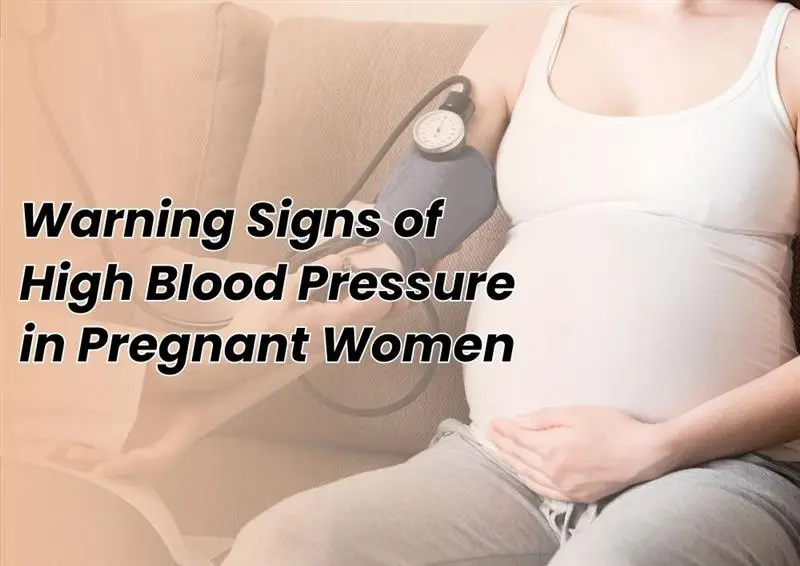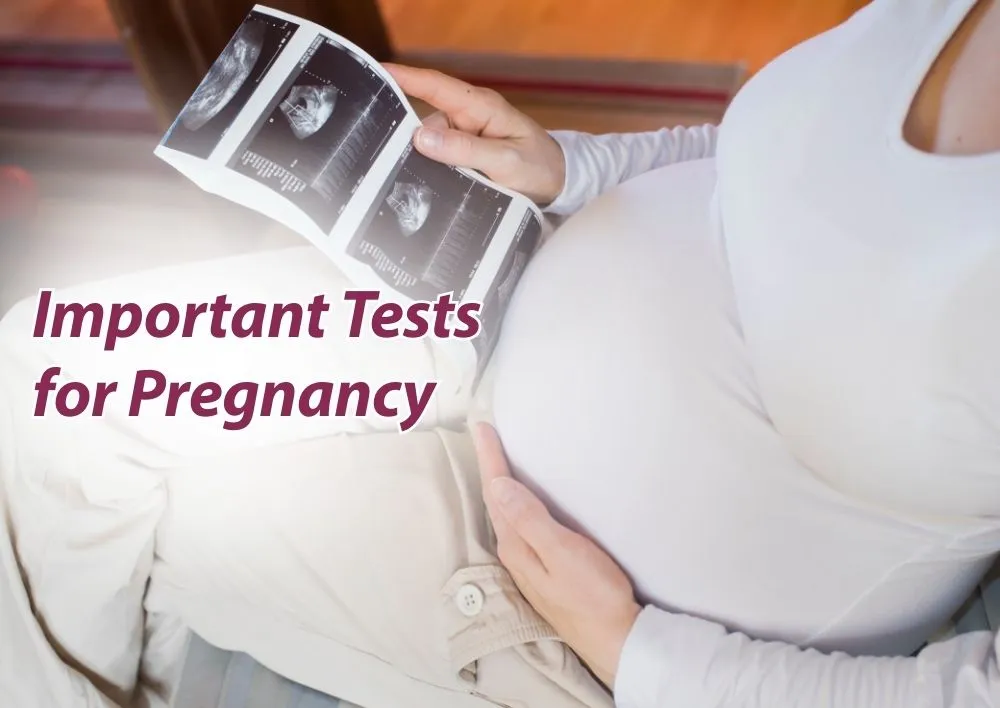Warning Signs of High Blood Pressure in Pregnant Women
Summary
Did you know that studies show nearly 1% to 5% of pregnant women experience high blood pressure during pregnancy? While it may sound common, ignoring it can put both the mother and baby at risk. The tough part is that high blood pressure often develops silently, without obvious signs. That is why it is important to understand the early symptoms of high blood pressure during pregnancy and take timely action.
In this blog, we will explore the common symptoms of high blood pressure during pregnancy that you should not ignore.
What is High Blood Pressure During Pregnancy?
Hypertension happens when blood pushes against the artery walls with more force than normal over a long period of time. During pregnancy, this is called gestational hypertension if it develops after 20 weeks. In certain situations, it can develop into a more severe condition called preeclampsia.
According to doctors, high blood pressure in pregnancy should never be ignored. “Timely diagnosis and regular monitoring are the keys to preventing complications for the mother and the baby,” explains Dr. Amrapali Dixit, senior gynaecologist in gurgaon at Miracles Apollo Cradle. Proper care, lifestyle changes, and medical guidance ensure a safe and healthy pregnancy.
Common Symptoms of High Blood Pressure in Pregnancy
Not all women experience clear signs of pregnancy hypertension. Sometimes, the condition is only detected during routine antenatal check-ups. However, some warning symptoms may point towards high blood pressure:
1. Severe Headaches
Constant headaches that don’t go away with rest or mild medication can be a warning sign of high blood pressure in pregnancy.
2. Blurred Vision or Vision Changes
Many women report seeing spots, flashes, or having blurry vision. This happens because high blood pressure affects blood flow to the eyes.
3. Swelling
Some swelling in the feet, ankles, and hands is normal in pregnancy. But sudden or severe swelling, especially in the face and around the eyes, could be linked to high blood pressure.
4. Sudden Weight Gain
Fast weight gain in a short time, not related to normal pregnancy growth, may signal fluid retention because of high blood pressure.
5. Pain in the Upper Abdomen
Sharp or constant pain under the ribs, especially on the right side, can be a warning sign. It may indicate preeclampsia, which needs immediate attention.
6. Shortness of Breath
High blood pressure can sometimes cause fluid buildup in the lungs, leading to difficulty in breathing.
7. Nausea and Vomiting
While nausea and vomiting are common in early pregnancy, if they start suddenly in later months and are accompanied by other symptoms, it may be related to hypertension.
How to Manage High Blood Pressure in Pregnancy?
If your gynecology doctor diagnoses high BP, they may recommend:
-
Regular monitoring of blood pressure and urine tests
-
A healthy diet with less salt and more fresh fruits, vegetables, and whole grains
-
Staying active with safe pregnancy exercises as advised by your top gynecologist
-
Adequate rest
-
Stress management
-
Medication, if needed, that is safe for both mother and baby
-
Never take blood pressure medicines without your doctor’s advice.
When to See a Doctor
Always attend your regular antenatal check-ups. Even if you don’t have symptoms, your blood pressure is measured during every visit to keep you safe. However, seek medical help immediately if you notice:
-
Severe headaches or vision problems
-
Sudden swelling in the face, hands, or feet
-
Difficulty in breathing
-
Abdominal pain or sudden nausea in later pregnancy
-
Reduced movement of the baby
Conclusion:
High blood pressure during pregnancy is a condition that requires close attention, but with proper care, most women deliver healthy babies. By being aware of the symptoms of high blood pressure in pregnancy, you can act quickly and protect both your health and your baby’s well-being. If you notice any symptoms of high blood pressure in pregnancy, don’t ignore them. Consult an experienced gynae near you for the right diagnosis and treatment.
Frequently Asked Questions
By eating a healthy diet, staying active with safe exercises, reducing salt intake, managing stress, and following your doctor’s advice.
A reading of 140/90 mmHg or higher is considered high during pregnancy and needs medical attention.
Fresh fruits, vegetables, whole grains, lean proteins, and foods low in salt and processed sugar are recommended.
Yes, it can reduce blood flow to the placenta, leading to low birth weight, preterm birth, or other complications if unmanaged.
In some cases, doctors may advise partial or complete bed rest, but it depends on the severity of the condition.
Miracles Apollo Cradle has a team of the best gynecologists in Gurgaon, highly experienced in managing pregnancy-related hypertension.
















Was the information useful?
0 0